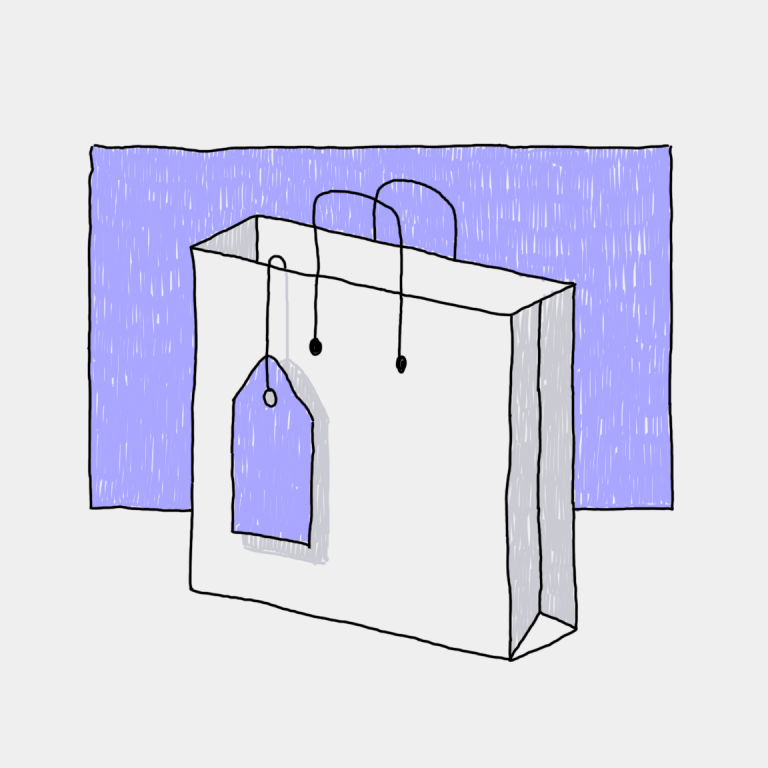Der Begriff
Entgegen der landläufigen Meinung, trotz des Wachstums des E-Commerce,

Zweifellos blieben sie in vielen Bereichen die dominierende Kraft. Am wichtigsten ist jedoch,
Trotz ihrer langen Geschichte und tadellosen Erfolgsbilanz stehen traditionelle Einzelhandelsgeschäfte immer noch vor vielen Herausforderungen, die sie dazu zwingen, ihre Strategien anzupassen und Elemente des Online-Shoppings zu integrieren, wie z. B.
In den nächsten Abschnitten werden wir uns damit befassen, was genau ein
Was ist ein Ziegel und Mörtel Geschäft?
Die
Im Einzelhandel steht dies im Gegensatz zu Online- oder E-Commerce-Shops, die ausschließlich über das Internet betrieben werden und über kein physisches Ladengeschäft verfügen.
Diese Art von Geschäft, auch einfach „physisches Geschäft“ genannt, ist ein traditionelles Einzelhandelsunternehmen, das von einem physischen Standort aus operiert, normalerweise einem Ladenlokal oder einem Geschäftsraum. Sie haben eine physische Präsenz in der realen Welt, wo Kunden vorbeischauen und Produkte oder Dienstleistungen direkt kaufen können.
Eine beträchtliche Anzahl von Verbrauchern bevorzugt weiterhin das Einkaufserlebnis und Stöbern im physischen Einzelhandel. Innerhalb
Für viele Verbraucher ist die Möglichkeit, mit sachkundigen Mitarbeitern zu sprechen und Fragen zu Produkten oder Dienstleistungen zu stellen, ist ein Hauptgrund, warum sie lieber in physischen Geschäften einkaufen.
Darüber hinaus gibt es auch die Testen und
Vorteile und Nachteile von Ziegel und Mörtel Läden
Wie wir bereits wissen,
Insgesamt ist der Einkaufsprozess in physischen Geschäften interaktiver und
Obwohl physische Geschäfte viele Vorteile bieten, stehen sie jedoch auch vor einigen Herausforderungen wie höheren Gemeinkosten, längeren Öffnungszeiten, eingeschränkter geografischer Reichweite, saisonalen Schwankungen, Lagerverwaltung und sogar starker Konkurrenz durch E-Commerce-Geschäfte.
Insgesamt Aufrechterhaltung eines physischen Ladengeschäfts bringt erhebliche Kosten wie Miete, Nebenkosten und Personal mit sich, die den Gewinn schmälern können. Physische Geschäfte sind außerdem durch ihren Standort eingeschränkt, was ihren potenziellen Kundenstamm im Vergleich zu Online-Shops, die ein globales Publikum erreichen können, begrenzt.
Im Gegensatz zu Online-Shops, die rund um die Uhr geöffnet bleiben können, sind traditionelle Geschäfte oft durch Öffnungszeiten eingeschränkt. Eines der größten Probleme, mit denen traditionelle Geschäfte heute konfrontiert sind, ist, dass Online-Händler bieten oft günstigere Preise und eine größere Produktauswahl, was eine starke Konkurrenz für
| Vorteile | Nachteile |
| Personalisierter Kundenservice | Höhere Gemeinkosten |
| Greifbares Einkaufserlebnis | Begrenzte geografische Reichweite |
| Markenerfahrung | Betriebszeitenbeschränkungen |
| Soziale Interaktion | Herausforderungen bei der Bestandsverwaltung |
| Unmittelbare Befriedigung | E-Commerce-Wettbewerb |
| Höhere Sicherheit und Vertrauen | Saisonale Schwankungen |
Diese Vor- und Nachteile unterstreichen das einzigartige Wertversprechen, das
Arten von Ziegel und Mörtel Läden
Baumärkte
Diese Geschäfte sind auf Produkte für die Renovierung, den Bau und die Instandhaltung von Häusern spezialisiert, wie etwa Eisenwaren, Werkzeuge, Schnittholz und Farbe.
Zoohandlungen
Einzelhändler, die Tierfutter, Zubehör und Bedarfsartikel für verschiedene Arten von Haustieren verkaufen, darunter Hunde, Katzen, Vögel, Fische und Kleintiere.
Apotheken/Drogerien
Geschäfte, die verschreibungspflichtige Medikamente anbieten,
Kosmetik- und Schönheitsgeschäfte
Einzelhändler, die sich auf Kosmetik, Hautpflege, Haarpflege und Schönheitszubehör konzentrieren und oft beides anbieten
Juweliergeschäfte
Einzelhändler, die auf edlen Schmuck, Uhren und Accessoires spezialisiert sind und ein breites Produktspektrum von Alltagskleidung bis hin zu Luxusartikeln anbieten.
Einige beliebte Marken, die als Beispiele dienen für
Bekleidung und Mode
- Macys
- H & M
- Zara
Kosmetik und Schönheit
- Sephora
- Ulta Schönheit
- MAC Kosmetik
Möbel und Wohndekor
- Ikea
- Kiste und Fass
- Pottery Barn
- Ashley HomeStore
Dies sind nur einige Beispiele, aber
Die meisten dieser Geschäfte kombinieren den traditionellen Verkauf mit einem physischen Standort und bieten den Kunden gleichzeitig die Möglichkeit, online einzukaufen. Dies ist ein weiterer Beweis dafür, dass beide Geschäftsmodelle effektiv sein oder sogar besser funktionieren können, wenn sie miteinander kombiniert werden.
Sind Ziegel und Mörtel Sterben Geschäfte?
Während traditionell
Wir haben noch viel zu erwarten von
Sind Ziegel und Mörtel Gehen Geschäfte online?
Angesichts des Transformationsprozesses, den der traditionelle Einzelhandel derzeit durchläuft, können wir sagen: Ja, auf jeden Fall!
Viele traditionelle Einzelhändler haben E-Commerce-Websites gestartet oder sind Partnerschaften mit Online-Marktplätzen eingegangen, um ein breiteres Publikum zu erreichen und bequemere Einkaufsmöglichkeiten anzubieten. Diese Verlagerung auf Online-Kanäle ermöglicht es ihnen, Kunden anzusprechen, die den Komfort des Einkaufens von zu Hause oder über mobile Geräte bevorzugen.
Darüber hinaus ermöglicht eine Online-Präsenz
Mit Hilfe einer Plattform wie Eciwd,
Im heutigen, vorherrschenden digitalen Zeitalter können traditionelle Ladenbesitzer problemlos die von Plattformen wie Ecwid angebotenen Funktionen nutzen, um die Kundenbindung zu verbessern, wie zum Beispiel E-Mail-Marketing-Tools, Customer-Relationship-Management (CRM)-Integrationen und Live-Chat-SupportDiese Werkzeuge ermöglichen
Indem wir den Bedarf an Veränderungen oder die schnelle Verschmelzung von traditionellen Geschäften und E-Commerce ausnutzen und E-Commerce-Websites wie Ecwid nutzen,
- So verlagern Sie Ihr stationäres Geschäft ins Internet
Ziegel und Mörtel: Ein Blick auf verschiedene Arten von physischen Einzelhandelsgeschäften- So erstellen Sie einen Online-Shop ohne Website
- So starten Sie einen Online-Shop ohne Budget
- So starten Sie einen Online-Shop ohne Inventar
- Wie viel Geld benötigen Sie, um einen Online-Shop zu eröffnen?
- Was Sie vor dem Start Ihres E-Commerce-Shops tun sollten








